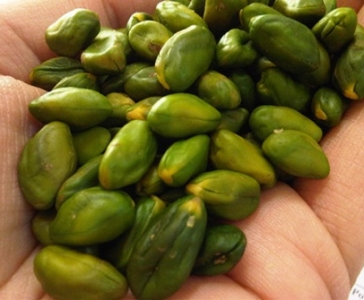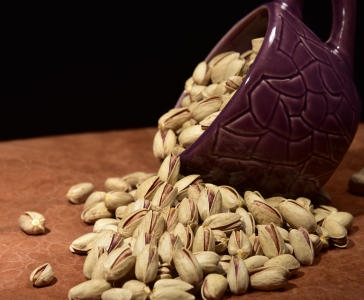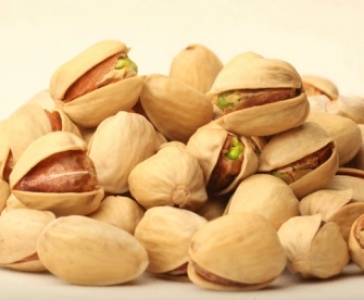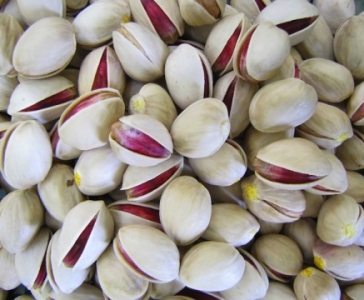HEALTH BENEFITS OF PISTACHIOS:
In research at Pennsylvania State University, pistachios in particular significantly reduced levels of low-density lipoprotein (LDL cholesterol) while increasing antioxidant levels in the serum of volunteers In rats, consumption of pistachios as 20% of daily caloric intake increased beneficial high-density lipoprotein (HDL cholesterol) without lowering LDL cholesterol, and while reducing LDL oxidation.
Consuming unsalted, dry-roasted pistachios prevents any addition of unwanted fats and additional sodium in the diet that may affect cardiac health adversely and increase hypertension.
Human studies have shown that 32–63 grams per day of pistachio seeds can significantly elevate plasma levels of lutein, alpha-carotene, beta-carotene, and gamma-tocopherol.
In December 2008, Dr. James Painter, a behavioral eating expert, professor and chair of School of Family and Consumer Sciences at Eastern Illinois University, described the Pistachio Principle. The Pistachio Principle describes methods of “fooling” one’s body into eating less. One example used is that the act of shelling and eating pistachios one by one slows one’s consumption, allowing one to feel full faster after having eaten less.
The fat profile of Pistachios is roughly 14% saturated fat, 54% monounsaturated fat and 32% polyunsaturated fat. A 1-cup serving of pistachio seeds contains 6.143g of saturated palmitic fatty acid, only 0.585g of stearic fatty acid and trace amounts of arachidic and behenic saturated fatty acids.




